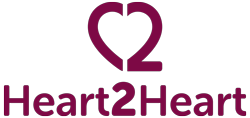Children’s Heart Federation and new alliance launch campaign for greater access to INR self-monitoring
The countdown starts today to the launch of a new campaign aimed at giving long-term warfarin patients greater choice in the management of their condition. The campaign will be launch in the House of Commons on the 24th October 2012
The Children’s Heart Federation has supported children with heart conditions and their families for almost 25 years. Along with a number of other charities we are supporting this new campaign, as this change would make such a big difference to many families who we support.
Currently we do what we can to provide machines to families who want them, or are referred to us by their health professional. We hear time and time again stories of families having to make journeys many hours long, week in week out, simply to conduct a short INR test which they could, with appropriate support, carry out at home. The expense of travel, the disruption to parents work, disturbance to the child’s schooling, the long sometimes difficult journeys could all be minimised or prevented with this small change.
This is why, on behalf of all the families who could benefit, we ask you to get behind and support this fantastic campaign.
There are more than 1.2 million1,2 people in the UK on warfarin of which less than two per cent benefit from self-monitoring3, despite evidence that it can cut the risk of death by nearly two-fifths and more than halve the risk of strokes4.The AntiCoagulation Self-Monitoring Alliance (ACSMA) is launching a new campaign with the specific objective of achieving greater access via prescription to INR self-monitoring technology for patients receiving warfarin therapy. The alliance is also seeking to raise awareness of the benefits of self-monitoring and aims to ensure that patients are equipped to have informed discussions with their healthcare professionals on this topic.
ACSMA comprises four of the UK’s leading charities and patient groups – AntiCoagulation Europe; the Children’s Heart Federation; the Atrial Fibrillation Association; the Mechanical Heart Valve Support Group – that exist to provide advice, support and guidance to patients on oral anticoagulation therapy, as well as their families and healthcare professionals. Healthcare company Roche is also part of the alliance.
Eve Knight, Chief Executive and Co-founder of AntiCoagulation Europe said: “The goal of theAllianceis for patients to have sufficient information to enable them to have a greater choice in the management of their anticoagulation therapy. We believe that patients should be able to choose whether to self-monitor. This change could lead to improved health outcomes, ultimately saving money for both patients and the NHS.”
ACSMA presents its charter today at the 5th Annual PECSIG (Paediatricians with Expertise in Cardiology Specialist Interest Group) Conference 5i n Oxford in advance of its national launch later this month. The alliance will be running a programme to influence and shape a positive political and NHS environment that encourages and supports self-monitoring of anticoagulation therapy in those patients for whom it is suitable and appropriate. A series of regional events throughout theUK is planned with the aim of bringing together key figures from the new NHS, government and also current warfarin users. These regional meetings will provide a forum to share best practice and experience around the barriers faced by warfarin patients who wish to self-monitor.
Anne Keatley-Clarke, Chief Executive of CHF said: “Children with heart conditions have to miss a great deal of school to travel to hospital to have their INR levels checked, which is a disruption in their already difficult lives. Parents may also be prevented from going back to work and there are significant travel costs. Allowing families to self-monitor is a small change which would make a major difference to families across the country.”
ENDS
For further information on ACSMA, please contact Helen Johnson on mobile: 07771 975549or email at the following address:helen@helenjohnsonconsulting.com.
About anticoagulation testing and self-monitoring
Patients on oral anti-clotting medication, such as warfarin, are at increased risk of complications such as blood clots or excessive bleeding if their level of international normalised ratio (INR) is not regulated properly. The clotting pathway is affected by diet and other factors such as usage of other medications. Patients typically need to check their INR levels anywhere between once a month and once a week and for many, this involves either visiting a warfarin clinic in hospital or at the doctor’s surgery, or visiting a pharmacist led clinic at the chemist, which in some cases can involve giving a venous sample and waiting for hours for a result. Patient self-monitoring enables patients to test at home and liaise with their doctor or nurse by telephone, email, text or fax, therefore saving both the patient and their healthcare professional valuable time.
Notes:
1Gardiner et.al. Patient self-testing is a reliable and acceptable alternative to laboratory monitoring. Br J Haem 2004; 128:242-47
2Office for National Statistics 2008. Accessed 16 June 2011
3Data on file
4Heneghan C et al. Self-monitoring of oral anticoagulation: a systematic review and meta-analysis. Lancet 2006;367(9508):404-11
5Paediatricians with Expertise in Cardiology Specialist Interest Group (PECSIG)









